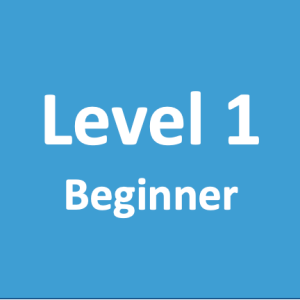How to pronounce two-syllable verbs and nouns in English
Here is Audio Word Study #016 from DailyStep English at DailyStep.com.
In this week’s audio blog about Austerity Britain (see below), there are some words that have the same spelling but a different pronunciation. For example:
1. a) …the Lib Dems have voted in favour of the fee increases.
b) The new government plans would increase the maximum amount of tuition fees to £9,000…
2. a) It started as a student protest against rising tuition fees…
b) The students organised a march to protest against these changes
Why are these words pronounced differently? It is because we are using the same word as both a noun and a verb. .
In sentence (a) of each example above, the word is a noun. These nouns are increase and protest. .
In sentence (b) of each sentence above, the word is a verb. These verbs are increase and protest..
We have a rule in English about this:
.
If a noun or an adjective has 2 syllables, the word stress is usually on the first syllable
If a verb has 2 syllables, the word stress is usually on the second syllable.
.
Let’s look at some other examples.
1. You will progress a lot with your English if you follow this rule.(verb)
You will make a lot of progress with your English if you follow this rule. (noun)
2. There has been a decrease in the number of visitors to the museum. (noun)
The number of visitors to the museum has decreased. (verb)
3. He rejected the plan.
This bowl was a reject, so I bought it at half price. (note: the noun ‘a reject’ means ‘something that was rejected due to deficiency’)
4. Steel is one of Britain’s main exports. (noun)
Britain exports a lot of steel (verb)
5. Britain imports a lot of food during the winter. (verb)
Food is a major import for Britain during the winter. (noun)
6. Everyone was present at the meeting. (adjective)
He gave me a birthday present. (noun)
I will present my ideas to the company tomorrow in a presentation.(verb)
But be careful, because sometimes the meaning of the noun and verb is different!
1. He refused to sign the document.
There is a refuse collection every Monday in the street where I live. (note: the noun ‘refuse’ means ‘rubbish’).
2. He produces films. He is a film producer.
That shop sells fruit and other produce. (note: the noun ‘produce’ means ‘food or goods that are grown through farming’)
3. This car has a defect. It does not work properly. (note: the noun ‘defect’ means ‘fault’)
Rudolf Nureyev, the famous Russian ballerina, defected from the Soviet Union to the West in 1961. (note: the verb ‘defect’ means ‘to leave a country, political party, etc., especially in order to join an opposing one’.)
(note: I’m afraid I made a mistake. Rudolf Nureyev was a ballet dancer, not a ballerina. Ballerinas are always female. Thank you Zoya for pointing that out!)
Of course, there are exceptions to the rule about word stress in 2-syllable nouns and verbs. Some words have the same word stress for both the noun and the verb. Examples of these are:
1. I answered the telephone. (verb)
I will give you my answer tomorrow. (noun)
2. I can just picture you as a politician. (verb)
I like that picture. (noun)
3. He travels a lot. (verb)
He told me all about his travels in Asia. (noun)
Austerity Britain
by Jane Lawson at DailyStep.com.

There has been a riot in London recently. Maybe you have seen it on the TV news. It started as a student protest against rising tuition fees, as you can see in the top picture. But it finished as a riot, with smashed windows and violence.
So why are the students so angry? They are furious that the government is planning a big rise in the cost of University courses. At the moment, students who go to university have to pay up to £3,230.00 per year for their courses. They also have to pay for their living expenses and books. The new government plans would increase the maximum amount of tuition fees to £9,000.00. In other words, the fees could triple!
The students are particularly angry with the Liberal Democrat party, and their leader Nick Clegg, because before the General Election in May 2010, the Lib Dems promised to vote against rises in tuition fees. Now that they are in a Coalition Government with the Conservative Party, the Lib Dems have voted in favour of the fee increases.
The students organised a march to protest against these changes. There was a huge turnout for the protest, and some of the protesters decided to attack the Conservative Party Headquarters, at Millbank. They smashed the windows and entered the building, and finally climbed up to the roof. One of the students threw a fire extinguisher from the roof at some police officers below.
The newspapers say that the march was hijacked by anarchists, but many of the students who were photographed and filmed on CCTV at the riot were very young and did not even cover their faces. Many of them have now been arrested by the police. You can hear a heated discussion about this riot in next week’s Level 4 DailyStep audio lessons.
There will probably be more protests in Britain over the coming months. Perhaps we will have a ‘winter of discontent’ with many strikes about government’s recent austerity budget. Because of the financial problems in the UK, caused by the credit crunch, there will be big cuts in all areas of government spending, leading to high unemployment and homelessness.
There is a big debate in the UK about whether the Government is doing the right thing with their austerity budget. Of course we need to cut spending and reduce our debt – but is the government going too far? Let’s see what happens…
Now listen again to this week’s audio word study.
If you enjoyed my Audio Blog, please share it. Thank you 🙂
How to speak English fluently and understand fast English
DailyStep English Audio Lessons are designed to help you learn to speak and understand English at the speed that we speak it.
No matter how good your English is, you need to be able to follow a fast conversation in order to participate.
DailyStep English courses are fully accredited and you can get an internationally-recognised certificate for your CV or resume.
How to use your lessons:
How to slow the audio:
How to Start Daily Audio Lessons
✔ Daily Audio Lessons + Premium Audio in my Blog Library
✔ Your lessons never expire – you can take them again any time
✔ Change your level any time
✔ 100% happy or your money back!












